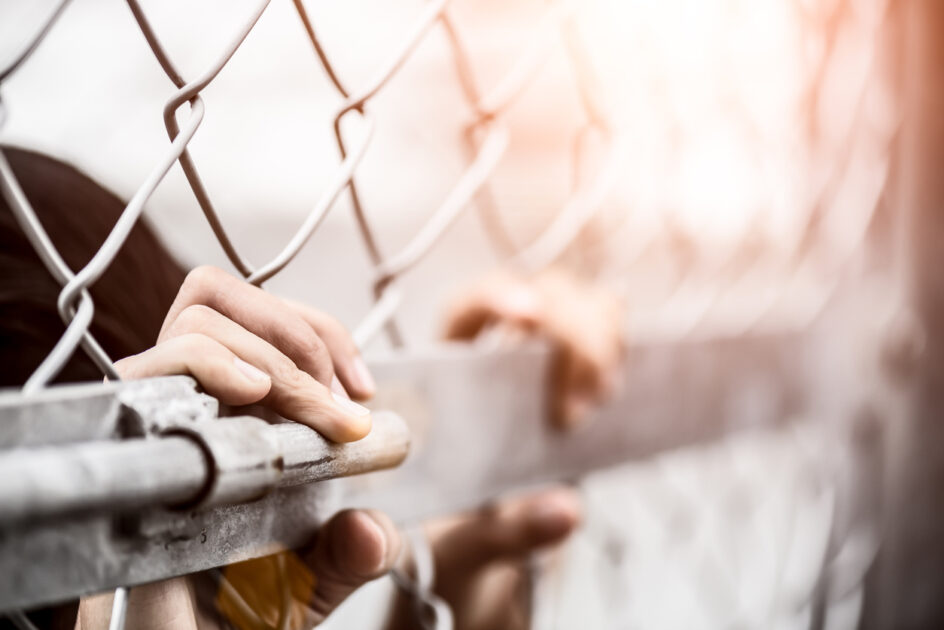What is Direct Provision in Ireland?
Direct Provision is a system used to accommodate and provide basic welfare to asylum seekers.

Direct Provision is a system used in Ireland since 2000 to accommodate and provide basic welfare to asylum seekers. An asylum-seeker is a person who has left their country and is seeking protection from persecution and serious human rights violations in another country. They haven’t yet been legally recognised as a refugee in the country they are living in and are waiting to receive a decision on their asylum claim. Direct Provision centres are also known as accommodation or reception centres. They were originally designed as a short-term solution to provide accommodation for up to six months to people while they waited for an outcome on their asylum applications.
There are currently 47 centres in total in Ireland, most of which are run by for-profit by private contractors. There are more than 7,000 asylum seekers living in Direct Provision centres across Ireland, including over 2,000 children.
Doras Luimní’s Key Issues with Direct Provision
Doras Luimní is an NGO which was founded in 2000 in response to the establishment of Direct Provision. They provide a free and confidential advice and legal information service on a range of immigration-related issues. Their website highlights the key issues with Direct Provision as:
- Length of time: The average length of stay in Direct Provision is 24 months, with some residents having spent up to 10 or 12 years living in these conditions
- Profit: The majority of Direct Provision centres are managed by private contractors on a for-profit basis, on behalf of the State
- Employment: Until February 2018, asylum seekers had no right to work in Ireland – unlike most EU member states. Restrictions still apply and the majority of people who live in Direct Provision centres have no right to access employment
- Education: People living in Direct Provision have limited access to further & higher education
- Isolated locations: Some centres are located in rural areas, with limited transport options and support services
- Privacy & overcrowded living conditions: Residents live in shared accommodation, with single adults sharing rooms with up to eight people of different backgrounds and nationalities
- Food: Three meals are provided at set times each day; limited cooking facilities are available in a small number of centres. Complaints have been made regarding lack of variety and lack of nutritional options in the centres
- Standards & monitoring: The living conditions vary widely from centre to centre. There is little trust in the complaints procedure & limited publicly accessible information on complaints or transfer decisions. The existing inspection system focusses on health & safety issues and does not consider the social or emotional needs of residents
- Health: Physical and mental health issues among residents are very common. Asylum seekers are 5 times more likely to experience mental health issues and psychiatric conditions
- Children: 30% of Direct Provision residents are children. Children have been born and raised living in these conditions, the long-term developmental effects of which are still unknown
Irish Government plan to end Direct Provision by 2024
In February 2021, the Government White Paper on Ending Direct Provision was released. The White Paper outlines the plan by the Department of Children, Equality, Disability & Youth on how it will end Direct Provision by the end of 2024, while transitioning to a new not-for-profit reception system. The White Paper envisages two phases of reception for international protection applicants:
- Initial four month stay in State owned reception and integration centres
- Six reception centres in total
- Intensive orientation programme including English language classes
- Early access to information on a range of services e.g. legal aid/ healthcare
- Eligibility to open bank accounts and obtain driver’s licences
- Daily Expenses Allowance will remain in place until phase 2
- People will have health and vulnerability assessments to inform accommodation and supports in phase 2
- Own-door, self-contained houses or apartments for families and own-door or own-room accommodation for single people, in the community
- NGOs will be contracted to provide support to vulnerable people
- Resettlement workers will be provided in each county to link people with services
- Applicants and their families will have the right to access mainstream services, such as in relation to education and health
- Access to further intensive English language supports to be provided
- Income support payment at a rate similar to the Supplementary Welfare Allowance
- Child support payment
- Access to employment if applicants do not receive a first instance decision within six months of applying for International Protection as well as access to employment supports
Deaths at Direct Provision Centres
In 2017 the Irish Catholic published figures that 44 people had died in Direct Provision between 2007 and 2017, including three stillborn babies and one “neonatal death”. The publication had received the information in response to a Freedom of Information request to the Department of Justice. Two people were recorded to have died as a result of suicide and one resident was stabbed to death. The “suspected cause of death” recorded for over one third of the people in Direct Provision was unknown.
Sylva, a transgender woman who went only by her first name, died on Thursday the 2nd of August at the Direct Provision Centre she had been living in Galway. Sylva had been living in an all-male direct provision centre since early last year and had come out as a transgender woman while living in Ireland. Sylva’s death has raised discussion in the media and on social media about the inadequacies of Direct Provision and more specifically the services available to and treatment of LGBTI+ residents at the centres.
Living in Direct Provision as a young person
If you are aged 16 to 25, have lived or are currently living in Direct Provision and would like to share your experience with us please email [email protected] to become a content contributor.
Need more information, advice or guidance?
We offer information, advice and guidance about the issues that matter to you. Our online Youth Information Chat service is for 16 to 25 year olds and is available Monday to Friday, 4pm to 8pm (excluding Bank Holidays).






